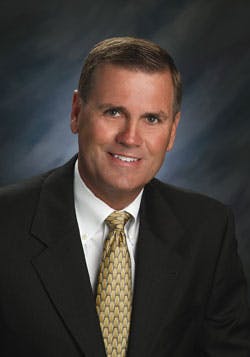Steve Bieszczat is the senior vice president of automotive and marketing at Epicor Software. The company recently announced a hosted version of its Eagle for the Aftermarket business management solution.
Bieszczat talked to Aftermarket Business World about the use of cloud-based and hosted solutions in the aftermarket.
What are the key benefits for aftermarket companies of deploying a cloud-based solution vs. on-premise?
There are benefits to both approaches, so it ultimately comes down to which choice makes sense given the nature of your business. Going with a hosted solution is a good choice when the owner doesn’t want to manage internal IT resources. Other business owners want to retain control of the IT environment, so owning and operating an on-premise server is the best choice for them. To put it in aftermarket terms, it’s the difference between do-it-yourself and do-it-for-me.
Reliability can be enhanced with a hosted solution because you are using a modern, professionally maintained virtual server that is updated and backed up for you. This approach also protects you from the potentially catastrophic downtime associated with a fire, flood, theft or other incident. With a cloud-based solution, your data would be fully accessible as soon as your business is ready to go back online.
With a cloud-based solution, your provider can also easily scale your virtual server either up or down to reflect the changing needs of your business.
And finally, data security is obviously a growing concern for any business owner. Our hosted solution offers protection from viruses, spyware, hackers and spam. Plus, we have extensive on-site security at each of our data centers and tightly control access to our virtual servers.
Can you tell me more about the cloud infrastructure, since the definition of “cloud” can vary by provider – are individual clients’ data hosted on separate servers, for example?
You’re right that “cloud” has many meanings in today’s IT environment, and it’s commonly misused. The more accurate terms are “hosted” and “SaaS” (software as a service). A hosted solution is one through which you purchase and retain full ownership of the software and essentially pay a monthly fee for the virtual server on which the software resides. A SaaS model is subscription based, meaning you pay for the right to utilize software that is owned by the provider.
How does the optional offline functionality work in the Epicor solution?
The virtual server each night transmits a copy of the updated inventory, pricing, account information and other data to the on-site PCs. This data allows the on-site hardware to act as a de facto server in cases when the Internet connection is lost. The business can even continue to process credit cards during these periods. When the connection is re-established, the updated local information is then transmitted to the virtual server.
What challenges are there for deploying a cloud solution in the aftermarket? Is your client base open to this model, or is there still a need for education?
Awareness is by far the biggest challenge, but that’s true of any new paradigm. A hosted solution makes a lot of sense for many aftermarket parts operations, just as it has for tens of thousands of wholesale and retail businesses around the world. Early thinking in the IT world was that moving to the cloud was best suited to smaller enterprises that wanted to avoid the costs and hassles of owning and maintaining hardware. But we’ve seen many larger businesses embrace the cloud as an industry best-practice. By contrast, many aftermarket businesses are very good at managing their IT infrastructure and will likely continue to do so over the long term.
Subscribe to Aftermarket Business World and receive articles like this every month….absolutely free. Click here.



